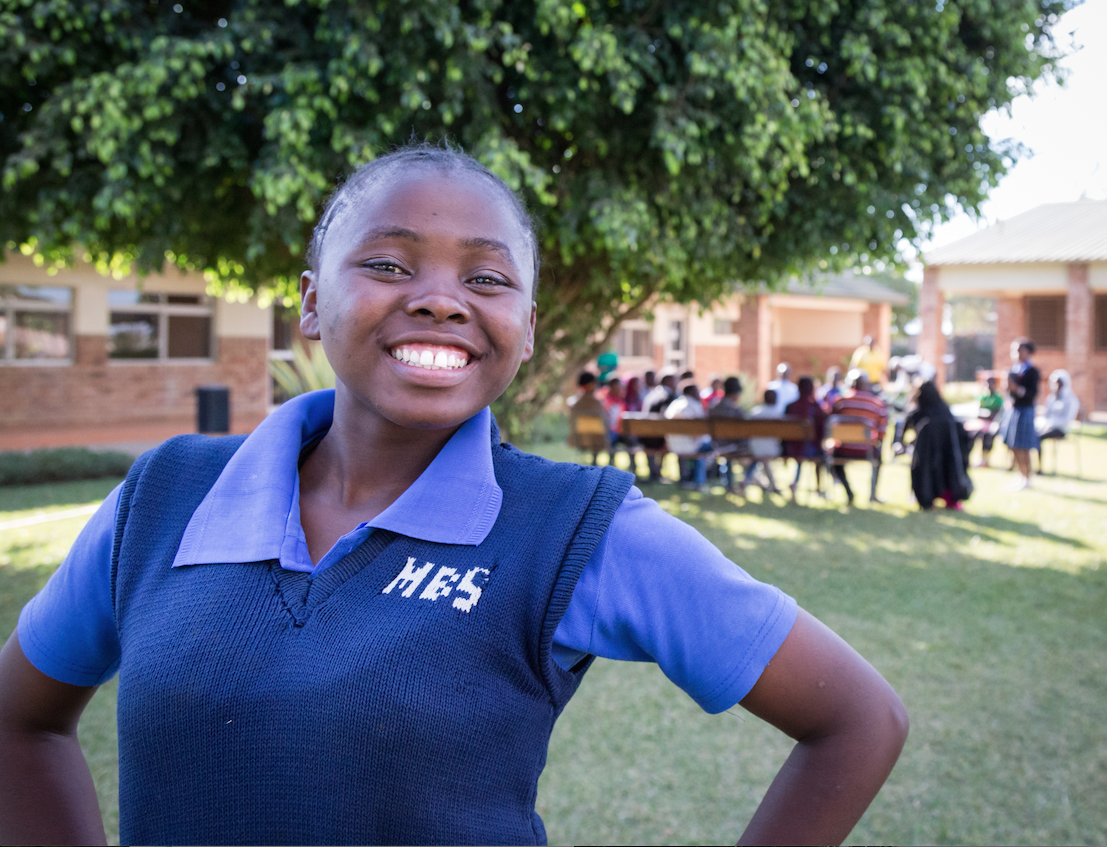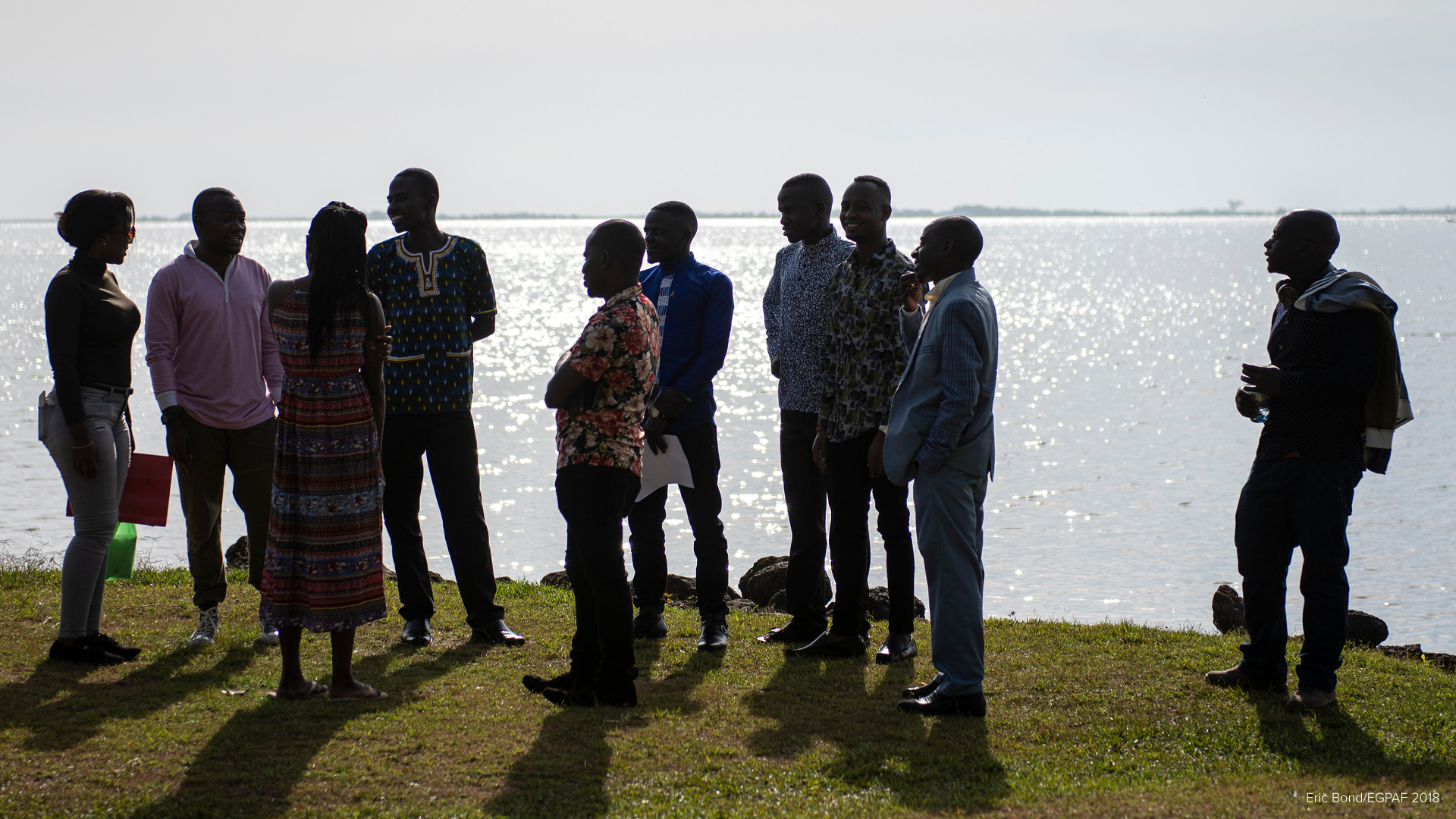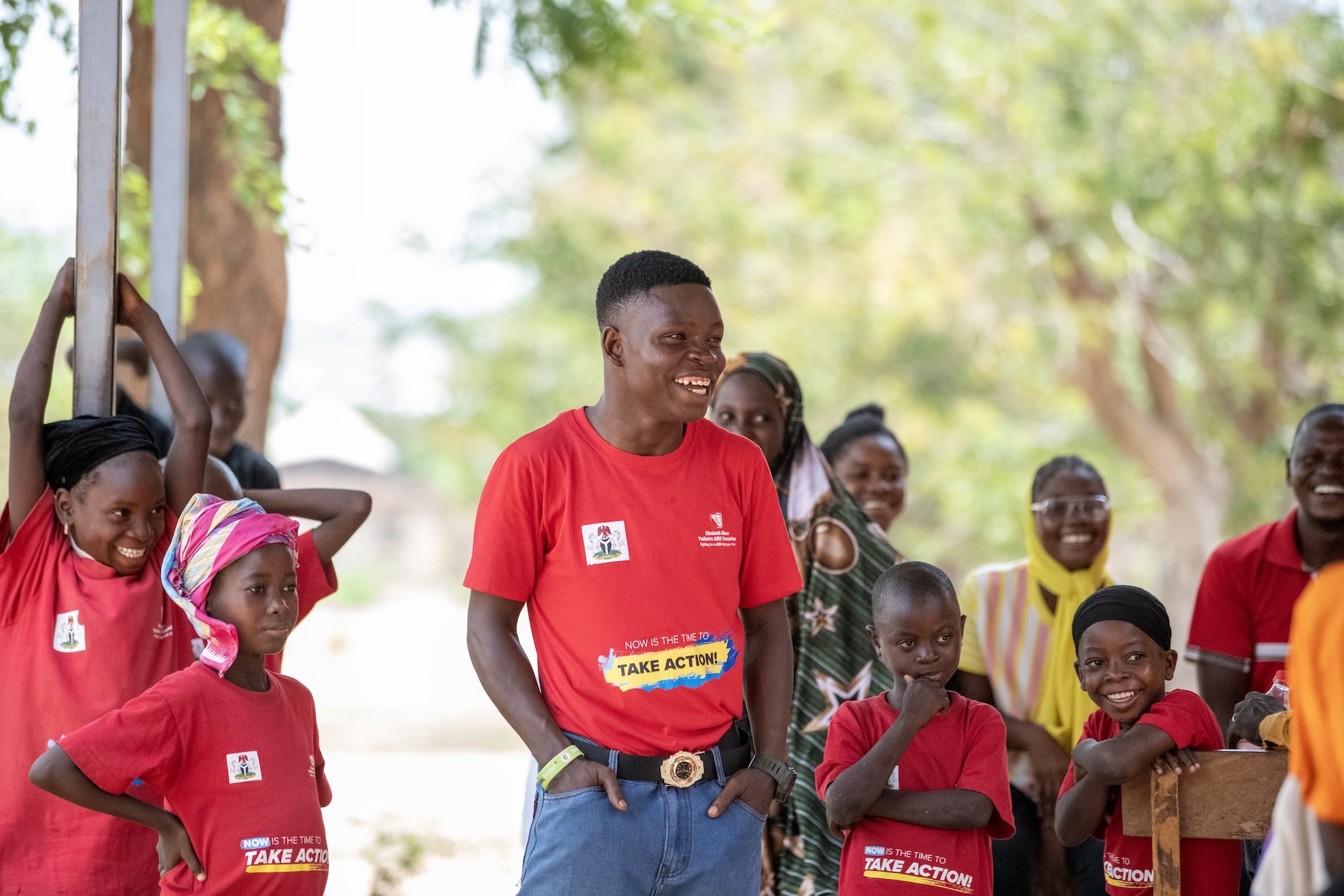While the global mortality rate of HIV has declined over the past 15 years—due to more cost-effective and increasingly accessible antiretroviral medication (ART)—young people ages 15–24, account for 35 percent of new HIV infections. AIDS remains the leading cause of death of adolescents in sub-Saharan Africa. Today, on International Youth Day, we introduce a young woman from Zambia who is making a difference while living with HIV—as a counselor in the Tisamala Teens program.
Our Lady’s Hospice is a neat cluster of brick buildings on the outskirts of Kalingalinga Compound, a densely populated, low-income area in Lusaka, Zambia. Although the name suggests otherwise, Our Lady’s Hospice, has little to do with death and dying. This health facility is bursting with life.
In 2012, the Elizabeth Glaser Pediatric AIDS Foundation (EGPAF) came to Our Lady’s Hospice and created the Teens Club, a support group for adolescents living with HIV. Later that year EGPAF introduced the Tisamala Teens mentor program, offering psychosocial support and life skills development to adolescents.
Tisamala, which means, “we care,” offers 13 interactive sessions. Topics include managing feelings, finding support, maintaining health in sexual relationships, making difficult decisions, and thinking about the future. Adolescents actively learn through participatory problem solving, which encourages peers to share their thoughts, beliefs, and experiences.

Jennifer Mwansa, 17, now a Tisamala counselor, was diagnosed with HIV when she was 8 years old, but was not made aware of her status until a couple of years later.
“It really felt bad,” says Jennifer. “You start thinking, ‘Why me?’ Some of my siblings are not HIV-positive, and I am one of them who is positive. How did that happen? So many questions. But I didn’t want to disturb myself, so I tried to be cool and first learn the truth about it.”
Today, after several years of counseling and peer support, Jennifer has come to not only accept her status, but to embrace it.
Even though I’m HIV-positive, I shouldn’t think as if it’s the end of the world. Jennifer
“Since I know my status, I know what to do with my life. I know what I shouldn’t do and what I should do. I know what to eat and what I shouldn’t eat. I have that knowledge on how to keep myself positive. Even though I’m HIV-positive, I shouldn’t think as if it’s the end of the world.”
“Most of my [peers, also living with HIV are] not the way I am. I’ve accepted the fact that I’m HIV-positive. But some of them are dying. Some of them are being discriminated against. Some of them are being stigmatized. So if I know that I can render help, I have to go in. I don’t only counsel young ones, I also counsel parents.”
Jennifer plans to attend university and attain a law degree.
Her advice for other children and adolescents who have recently learned their HIV status is:
“To accept: That’s the key to everything,” Jennifer says. “If you won’t accept the fact that you’re HIV-positive, you’ll be disturbed mentally. Even though you’ll be taking the medicine, they won’t be working because your mind is busy troubling you…. We just have to accept it first, and then live on.”





